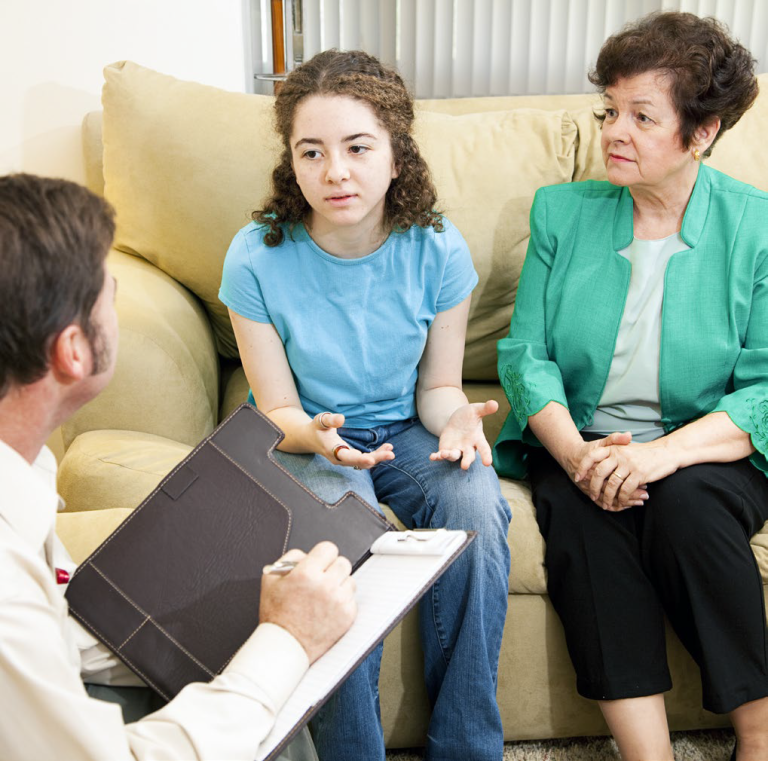You just found out your brother or sister is missing. Your life has suddenly turned upside down. Your emotions are running wild. Your thoughts are racing. The “normal” in life is gone. Home, as you have always known it, has changed.
Your parents are acting differently. Your home is likely full of friends, family—and strangers. These people you don’t know can be from law enforcement, the media, and social services. People may just come through the front door without knocking and walk all over your house, even going into your room.
Most of us feel best when things stay the same and we are surrounded by familiar things and people. Life and home now feel unfamiliar, and that’s uncomfortable and upsetting.
There are some things we want you to remember as you begin to face this new reality.
- You are going through something traumatic and terrible. What you are feeling is real. And whatever you are feeling is okay.
- You may be feeling emotions like anger, fear, guilt, and sadness.
- Over time, the constant anxiety and worry that comes with this situation can cause our minds and bodies to respond in ways designed to keep us safe or alleviate pain. However, this can cause real challenges to our mental and physical well-being.
- Depression, disassociation, and post-traumatic stress disorder (PTSD) can come into our lives, no matter how hard we try to do our best with everything.
- Ask for help, even when you’re not exactly sure what help means. It’s so important to reach out; and there’s no shame in it.
- Try to share your feelings with those you feel you can trust. Your parents, friends, a teacher, coach, school counselor, therapist, or another trusted adult in your life. It’s okay to ask for help.
- If you are feeling a sense of darkness, despair, or hopelessness and can’t find someone trusted to talk with, call or text the Crisis Hotline at 988. Someone is there 24/7 to talk to you. You can also reach out to the other resources listed on page 5.
- Connect with others. As much as you can, surround yourself with those who love you, care for you, and have your best interests at heart. Steer away from people who only think of themselves or who don’t respect your needs and boundaries.
- You matter. Value your needs and take care of YOU. Try to choose and use healthy outlets for your emotions rather than isolating yourself or doing things that will hurt you, bring negativity, and set you back. This will help you put your energies and emotions into a positive place.
Caring for yourself—your feelings and your physical needs—is one of the most important ways to be there for your missing brother or sister and your family.
- Look for activities that will help take your mind off troublesome things and give you a sense of normalcy and structure. Taking this step and finding things that can help you feel more centered and grounded is key to taking care of yourself and protecting your physical and mental health. You don’t have to be good at these; they may be completely new activities—and that’s okay. Here are some suggestions:
- Go for a walk, run, or do other exercises you like.
- Play a sport you like or try out a new one.
- Join a group or club.
- Listen to music, do artwork, or get back to another hobby you’ve enjoyed in the past.
- Read or journal.
- Try mindfulness exercises, reiki, or meditation.
- Connect with a therapist or counselor.
- Pray, attend a religious or spiritual service, or talk with a pastor, priest, rabbi, imam, or other spiritual counsel.
- Sometimes home feels too intense. It’s okay to take a break. Visit a friend, family member, or trusted adult. Spend the night at a friend’s house. Go for a walk or a bike ride. Go somewhere or do an activity with supportive friends. Just remember that whatever you do, tell your parents where you are going so they can feel safe that you’re okay and won’t worry about you.
- Don’t be too hard on yourself or your family. This journey is full of tough, messy situations. Even as you and your family members work through these times, try to be patient and keep an open mind. Help your family to feel seen and heard—and ask them to do the same for you. And remember, in almost every challenge through this journey, you all are better and stronger together.
“Hope is being able to see there is light despite all the darkness.” —Sayeh
“Just remember that trauma responses can manifest themselves later in life.” —Heather
“I came home from school, and everyone was sitting in the living room being quiet. No one told me what was going on.” —Trevor
“Sports gave me discipline, teamwork, confidence, and stress relief. My coach was always there to encourage me.” —Martha
“Find ways to convert your emotions into positive energy. Find ways to help yourself.” —Zach


